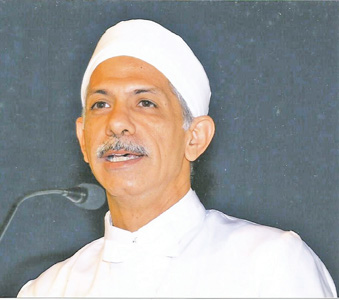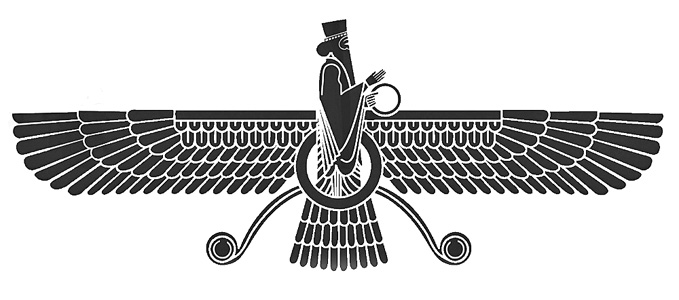.
 PT: How has Kem Na Mazda come to be the third prayer in the Pak Khordeh Avesta?
PT: How has Kem Na Mazda come to be the third prayer in the Pak Khordeh Avesta?
Er. Ramiyar: In a way, Kem Na Mazda is the first prayer, as it comes immediately after Yatha Ahu Vairyo and Ashem Vohu, two of the mighty mystic mantras. It is the first prayer with which our Kasti ritual begins.
.
PT: What is the literal meaning of Kem Na Mazda?
Er. Ramiyar: In the Kem Na Mazda prayer, Zarathushtra asks Ahura Mazda, “Who will give me and my followers protection when evils look at me with the intention to hurt, except Thy Fire (Divine Energy) and Mind (Consciousness), by whose actions the progress of the world takes place. Please reveal to me the religious knowledge associated with that. Which are your words for protection which smite the enemy, and which are for victory and protection. Do show me a spiritual teacher who can lead me to knowledge of material and spiritual worlds, so that Divine Guidance (Sraosha) can come through higher consciousness (Vohu Manah). Such wisdom comes only to those unto whom Mazda wishes and considers deserving. Oh Mazda and Spenta Armaiti! Protect us from pain and injury. Flee Oh! Evil; Flee Oh! Origin of evil; Flee Oh! Acts sown by evil; Flee Oh! Acts increased by evil; Flee away Oh Evil, run away Oh Evil, Flee far away Oh Evil towards the North. Do not make the orderly material world chaotic and vulnerable to destruction. Homage unto Armaiti, who is giver of prosperity.”
.
PT: Are divine vibrations generated when we recite Kem Na Mazda?
Er. Ramiyar: Divine vibrations are created by the chanting of any of our Manthravani prayers. Kem Na Mazda is one of the most powerful prayers in this sense. 65% of it comes from the Gathas and 35% from the Vendidad. Hence it can be considered one of the most powerful prayers.
.
PT: How do we recognize and acknowledge the protecting power of this prayer?
Er. Ramiyar: Kem Na Mazda talks about the different types of protections. Firstly protection with divine energy, then protection with divine wisdom and our own mind. Thereafter, protection through the help of a teacher who can guide us on the path of true knowledge and help us get self realisation. This is protection from ignorance. Finally, protection from Nasu or physical contagion and impurities. Protection is sought through Spenta Armaiti, mother earth, who absorbs all the organic unwanted things. Even the Manthric, performative effect of this prayer is to give protection. That is, just by reciting the prayer we get protection from unseen evils.
.
PT: Why is it essential to pray Kem Na Mazda before untying the Kusti?
Er. Ramiyar: We have the Sadra and Kasti on our body all day and night, protecting us from all evil. However, when we do the Kasti ritual, we untie and re-tie the Kasti. In this process we have to remove the Kasti from our waist for a few minutes. Our religion considers essential to have both the Sadra and the Kasti on our body at all times – even for the couple of minutes when we are without the Kasti when doing the Kasti ritual, we have to recite the Kem Na Mazda prayer so that it can protect us when we are without the Kasti.
.
PT: Why is Kem Na Mazda included in the Sarosh Baj and in numerous other prayers?
Er. Ramiyar: Being a prayer for protection, Kem Na Mazda is included in the Sarosh Baj, as it is in other prayers, like the Hoshbam prayer. It’s also recited in the Nahvani Baj, Paydast ni Baj, Nahan ritual, Bareshnum ritual, Sackar ritual, Geh- Sarna ritual and Vendidad ritual. Even the Nase-salars recite it while handling the corpse and depositing it in the Dakhma.
.
PT: How can we practically apply the tenets and principles of the Kem Na Mazda prayer to live as a righteous Zoroastrian?
Er. Ramiyar: As gleaned from the translation of the prayer, we come across the following tenets and teachings which we can apply in our lives:
- Ahura Mazda’s energy (Khoreh) and His wisdom protects us from evil. (thwahmāt āthrascha mananghaschā).
- Ahura Mazda’s energy (Khoreh) and His wisdom helps the Universe to progress (ashem thraoshtā Ahurā).
- The words of prayers give us the best protection (thwā poi senghā).
- Adequate knowledge of the material and spiritual worlds from a teacher protects us from the harm that comes on account of ignorance (Dām Ahumbish Ratum Chizdi).
- The above knowledge will help the coming of Sarosh Yazad and Bahman Ameshaspand who bring us wisdom and guidance (At Hoi Vohu Seraosho Jantu Mananghā).
- After getting divine help, the grace and decision of Ahura Mazda is necessary for us to be wise (Mazdā Ahmāi Yahmāi Vashi Kahmāichit).
- We have to make a strong commitment and mental preparation to keep away from evil in all its forms (Nase Daevi Drukhsh).
- The place of Evil is towards the North (Apakhedhre Apa-nasyehe).
- We pay homage to Mother earth for protecting us against tons of organic decay and decomposition by absorbing it within herself (Nemascha Ya Ārmaitish Izhāchā).
.
PT: What does ‘Mavaite Paayum Dadat’ mean? Why do we recite ‘Sarosh Asho Jantu Manangha’?
Er. Ramiyar: ‘Mavaite Paayum Dadat’ means protect me and my disciples. ‘Sarosh Asho Jantu Manangha’ means ‘May Sarosh Yazad and Bahman Ameshaspand come’.
.
PT: The prayer ends with the words ‘Nemascha Ya Armaitish Izaachaa’. Please explain the meaning and why we pray this line thrice?
Er. Ramiyar: This beautiful line is from the Spentomad Gatha. It means “Homage unto Armaiti who is giver of prosperity.” Here Armaiti refers to Spenta Armaiti, ie, Spandarmad Ameshaspand who presides over mother earth. By reciting this line we are thanking mother earth for her tolerance and beneficence on account of which we are able to live happily on this earth. That is why we touch the earth while saying this line. It is not necessary to recite this line thrice in the Kasti prayers.
